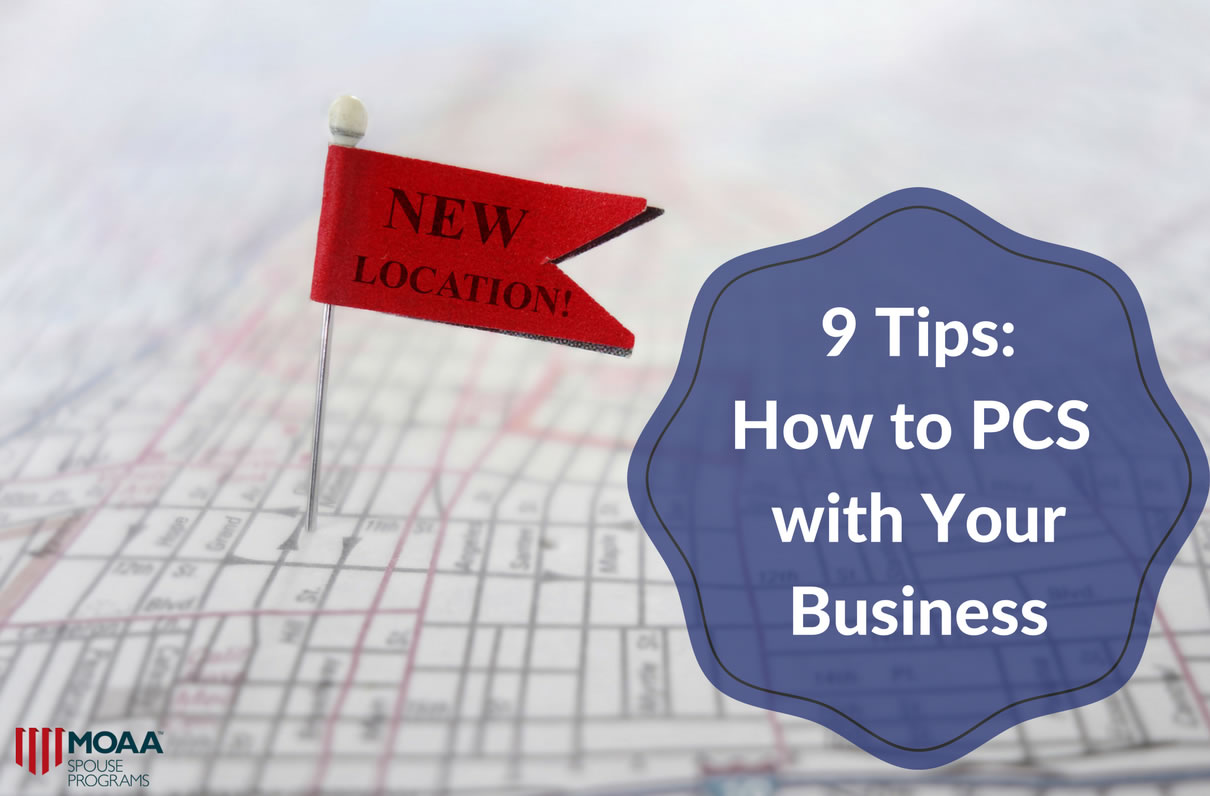Businesses relocate every day and for many reasons. Mostly to save money or accommodate growth, move closer to customers, or maybe just to enjoy a nicer location that’s more aligned with its target market. Military families typically don’t have the luxury of choosing when and where to move.
So where would a business begin to relocate with minimal impact?
Here's the thing: There are no guarantees. But with proper planning and added resources, your business can survive and thrive during this period of uncertainty.
1. Have a positive attitude. Whether you’re moving to your first- or last-choice duty station, having the right mindset and attitude is crucial. You can wallow in the unwelcome move, or you can take advantage of it and welcome new experiences. Think of all the good things that can happen: you’ll meet new friends, have new experiences, create more memories, attract new customers, and hopefully create a business that’s even more successful than before.
2. Be realistic about the state of your business. My mentor told me that a successful entrepreneur knows when it’s time to step down and move on. Yes, I know, your business is your baby. However, sometimes the business climate or assumptions you made in the beginning no longer hold true. The primary goal of any business is to make a profit. If you fail to do so or break even within a reasonable amount of time, it might be best to shut down and move on to something new.
Once you receive official PCS orders, start assessing the local market trends in your new city to see if there’s a place for your business. If not, identify another problem and create a solution. Use the relocation as an opportunity to grow your existing business, start fresh with a clean slate, or try something new.
3. Identify cost and what you can afford. Cost is a concern in all business decisions. Whatever you decide to budget, go ahead and double it. The move can be a cure-all by providing you a fresh start or cause financial ruin. Moving your household and family already is stressful. Relocating your company is even worse because of the potential for disruptions in service and the loss of customers and income.
In addition to moving expenses, keep an eye on operating costs. Contact your accountant or local tax office to learn about any tax advantages or disadvantages at your new location. Relocating my business from Okinawa, Japan, to North Carolina requires my customers to pay a 7 percent sales taxes on all purchases, among other expenses we didn’t have to consider when we were overseas.
4. Plan the move. Once your household goods pick up is scheduled, now you have a deadline. Inventory the physical assets and determine what you will keep, donate and toss. Be sure to confirm with Defense Travel Management Office (DTMO) what they will and will not transport. Contact your insurance company and ask whether you will need any additional insurance to cover items damaged, lost, or stolen during the move. Also, read the fine print. DTMO have stipulations on shipping commercial goods. Do your homework and plan accordingly.
5. Inform your customers. The key is to stay active and communicate with your customers leading up to and during the move. Use the relocation as an opportunity to provide a glimpse into your life behind the business. Share your travel stories and moving woes.
If time permits, notify customers and business contacts two months, one month, and again within two weeks of moving. Add website notifications, and include relocation information in every order. During the weeks leading up to the move date, add a short note along with your email signature. Offer a discount code for customers to be use when you reopen.
6. Reach your customers. Your business should arrive before you do. Start running target ads one month before you move. This will allow your ads to appear in specific geographic locations and help you better focus your advertising on finding new customers. Identify and engage in social media groups of interests to your customers. Start positioning yourself as a local resource in your industry.
7. Keep going. Expect a loss of productivity during the transition, but be ready to jump on the first opportunity that’s right for your business. If you can, ship merchandise ahead of the move. The slightest delay in delivering household goods can make or break your business. I prefer to send enough merchandise to stock a small pop-up shop in advance, so I'm able to sell quickly and hit the ground running.
8. Rely on your village for help. You might feel overwhelmed with everything that needs to be done with the new home, kids, and business. Don’t be afraid to ask for help. That’s what friends and family are for. Entrepreneurship can be a lonely journey. Don’t go it alone if you don’t have too.
9. It can’t be all business all the time. Our move back to the U.S. reminded me more than ever that everything rides on my health. Self-care is the single, most important area in your life that can and will break you down and impact how you perform and how well you serve your customers, either good or bad. My go-to self-care practice is blocking out a certain period of time each day to do something fun or senseless like couponing or watching reality TV.
Overall, moving your business is risky business. You might lose some of your most loyal customers, spend a lot of money you didn’t budget to spend, and even cause a lot of undue stress to your family. But a big move really can upsurge your business, and it can never hurt to be over-prepared.
